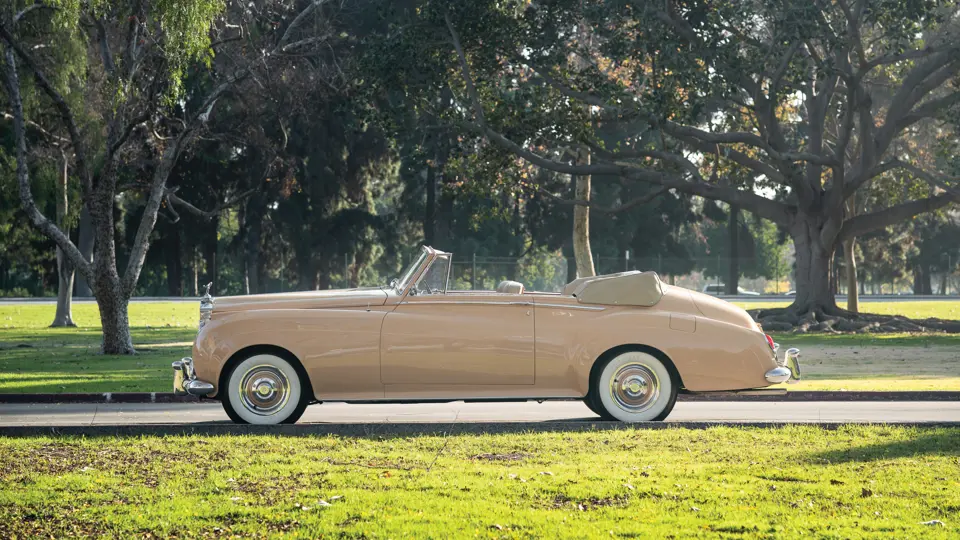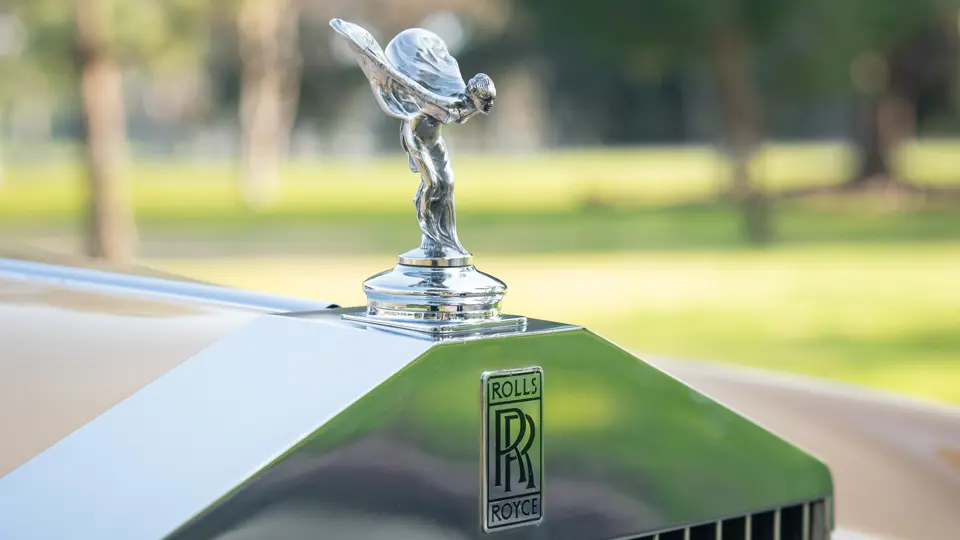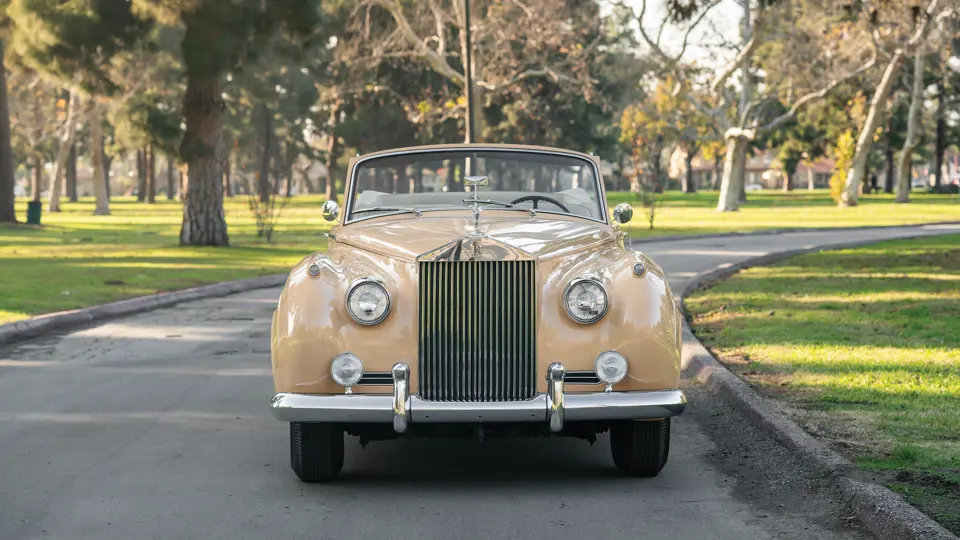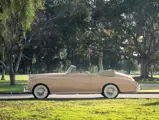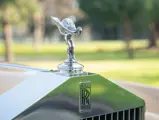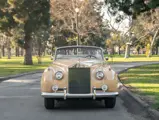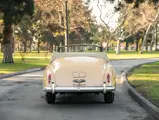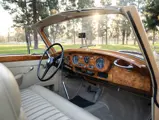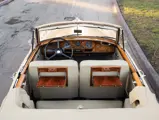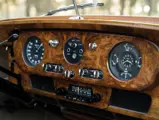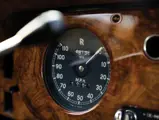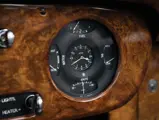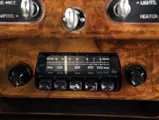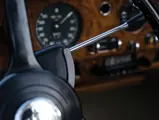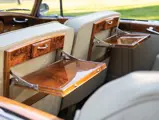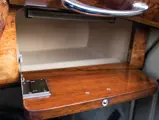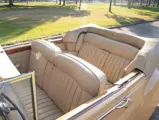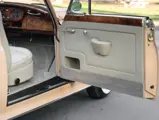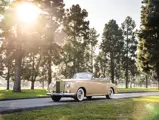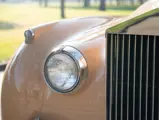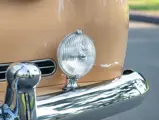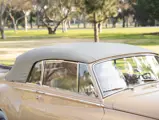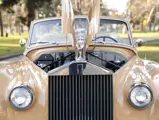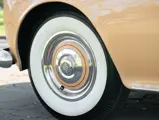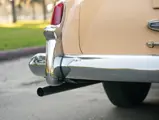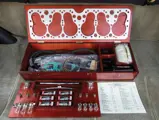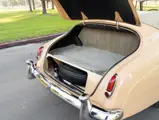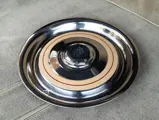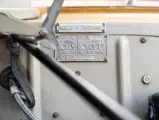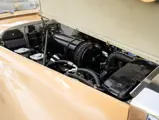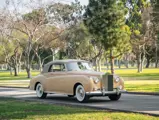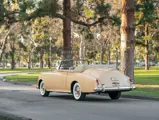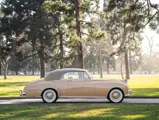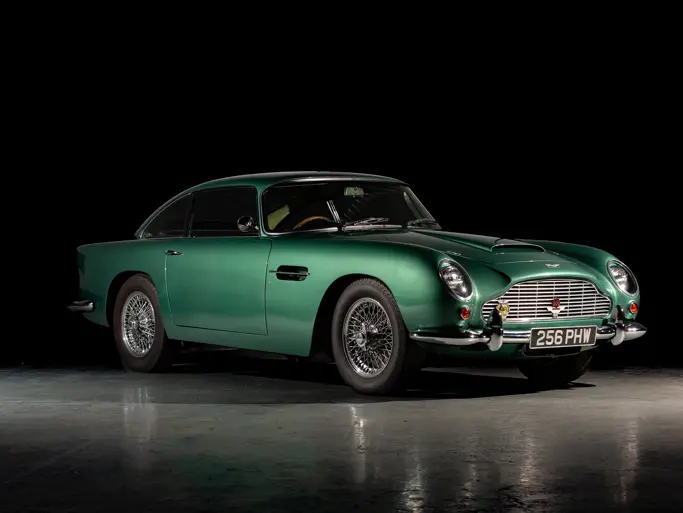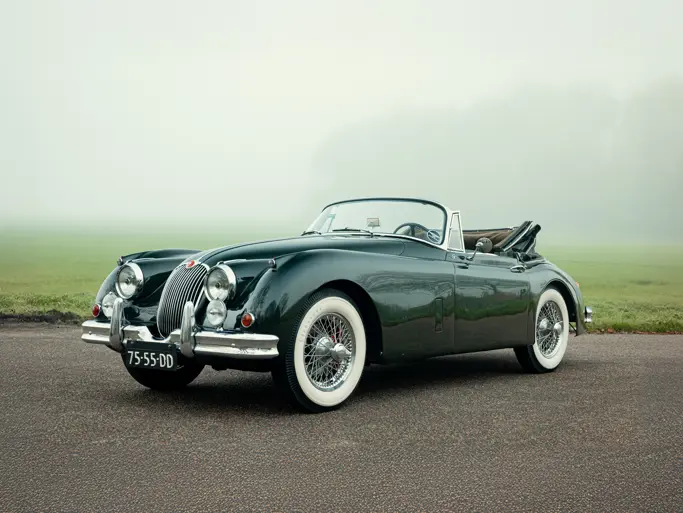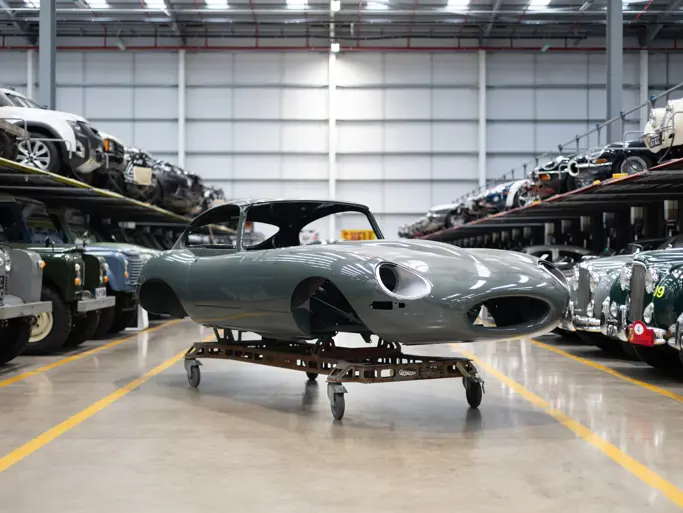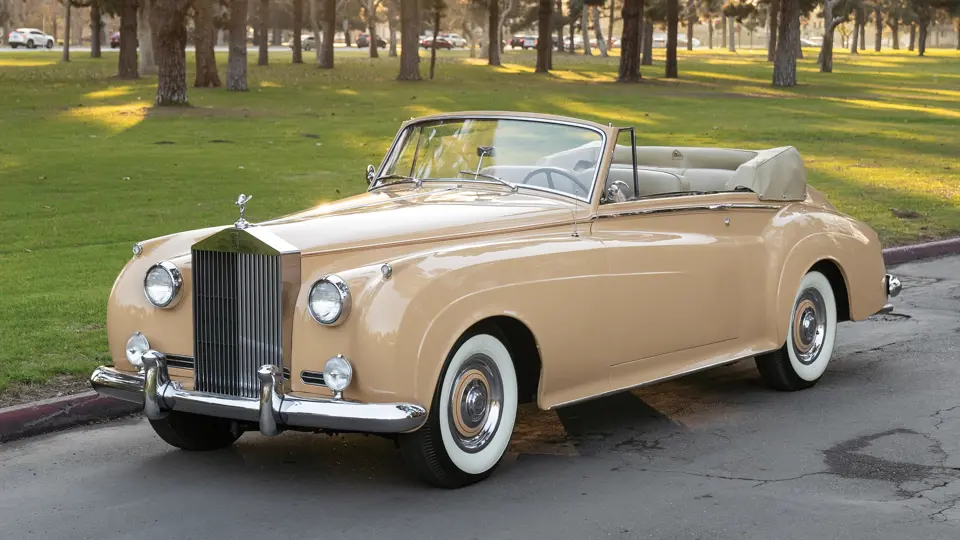
1959 Rolls-Royce Silver Cloud I Drophead Coupe Adaptation by H.J. Mulliner
{{lr.item.text}}
$445,000 USD | Sold
{{bidding.lot.reserveStatusFormatted}}
- Only 48,136 original miles
- One of only 10 left-hand-drive examples produced
- Factory special-order H.J. Mulliner convertible coachwork
- Previously of the Ted Mintz collection, former Rolls-Royce Owners’ Club (RROC) President
- Documented with build sheets from Rolls-Royce Foundation
- Includes desirable and rare Continental Touring Kit
In 1955, the long-awaited Rolls-Royce Silver Cloud and its sibling, the Bentley “S” model, were introduced. Vastly different from the former models, the Silver Dawn and R-Type, the Silver Cloud I was the last series to be powered by the ever-reliable inline six-cylinder F-head engine. The new standard steel saloon was delightfully proportioned, elegant, and cost far less than a coachbuilt car, and thus, out-sold those coachbuilt examples 100 to 1.
Early Silver Cloud I engine compression ratio was 6.6:1, but later Silver Cloud I models, and all models built for the North American market, such as this rare example, were built with an 8:1 ratio. This was the final configuration of the torquey, smooth, and powerful six-cylinder inline engine originally fitted to the venerable Silver Ghost. The General Motors Hydra-Matic automatic transmission, now standard with the Silver Cloud, was extremely well built, reliable, and was married to a servo-boost system to enhance braking. Specialists frequently remark that this is the ideal configuration of the early post-war models.
Although the highly popular new pressed steel body was in demand, there remained a steady, albeit small, market for unique customized bodies. Rolls-Royce records show 2,238 Silver Cloud models were built between 1955 and 1959, but only a few were bodied like this example, with custom coachwork. The special-order rolling chassis were sent to one of the few remaining coachbuilding firms, and when complete, the Company supervised final testing before delivery to the new owner. Open coach-built designs, like this H.J. Mulliner example, are much higher valued than the standard steel saloon cars. Always a hallmark of bespoke design and exceptional quality, recent Rolls-Royce and Bentley motor cars have been offered in a variety of “Mulliner” editions.
H.J. Mulliner fitted several convertible designs onto Rolls-Royce Silver Cloud chassis, but their most popular was the car offered here, design 7504, a factory-modified standard steel saloon, re-fabricated into a two-door drophead coupe configuration. Introduced at the New York Auto Show in April 1959, the new design was wildly popular in the American market, therefore most of the models were built with left-hand drive for export to the U.S. The accepted term used by H. J. Mulliner for this Design 7504 is “Adaptation,” as the coachbuilder adapted the standard steel saloon into a convertible, then fitting two doors in place of four, creating the most popular body style H.J. Mulliner ever conceived. Only 13 examples were created, of which 10 were produced in left-hand drive configuration, this example being the 4th completed.
This charming original example was built to special order for first owner George Baekeland of Southport, Connecticut. Mr. Baekeland’s father, Leo Baekeland, was the inventor of the first synthesized plastic, “Bakelite,” often used in Rolls-Royce components. Original order documents include such minute detail as “ . . . cold weather shields over the door locks . . . .” The list of special details fills one complete page. Ted Mintz, also from Connecticut, and former President of the Rolls-Royce Owners’ Club, added the car to his collection in 1976. He brought it to RROC events and meets throughout the 1970s and ’80s, winning numerous awards. The car later became part of the renowned Blackhawk Collection in Danville, California.
The interior was re-trimmed in its original beige Connolly hides by Rolls-Royce specialists, Vantage Motorworks, and remains as buttery soft and supple as when new. Original burled walnut woodwork is in the correct, not overdone, patina finish. An after-market, albeit correct R12 Chrysler, boot-mounted, AirTemp air-conditioning system was thoughtfully installed by marque specialists as well. The original paint color “Morris Beige,” a delightful butterscotch color, was repainted about four years ago, correctly done over bare metal. At that time, all major chrome was re-plated to show-quality standards. New and correct leather spring gaiters and exhaust system, an auxiliary electric radiator fan, electronic ignition, and new Firestone Deluxe Champion whitewall tires have been recently fitted. No detail has been overlooked, including a rare Yale master key, master key blank, and two Yale valet key blanks. A real bonus included is a rare find, a “Continental Touring Kit.”
It is quite unusual to find a car of this era so complete and original. Chassis LSMH21 retains its original engine and gearbox, original Smiths Radiomobile radio, original hand and road tools and owner’s handbook, as well as original maintenance manuals, instruction booklets, and copies of the original order documents from the Rolls-Royce Foundation, are included.
The term “rare opportunity” is often used, but the fact that this car is now available, is indeed a true, and rare opportunity. It is an honest example, presented as it was when new, always impeccably maintained, and now it is poised and ready to participate in the finest concours events, Rolls-Royce events, and be enjoyed on delightful Sunday drives.
As reviewer Jim Whipple wrote in November 1959 in his column for Car Life, “Rolls-Royce is the car for you if you really appreciate quality and attention to small but important details, and value craftsmanship more than gadgets and gimmicks . . . .”

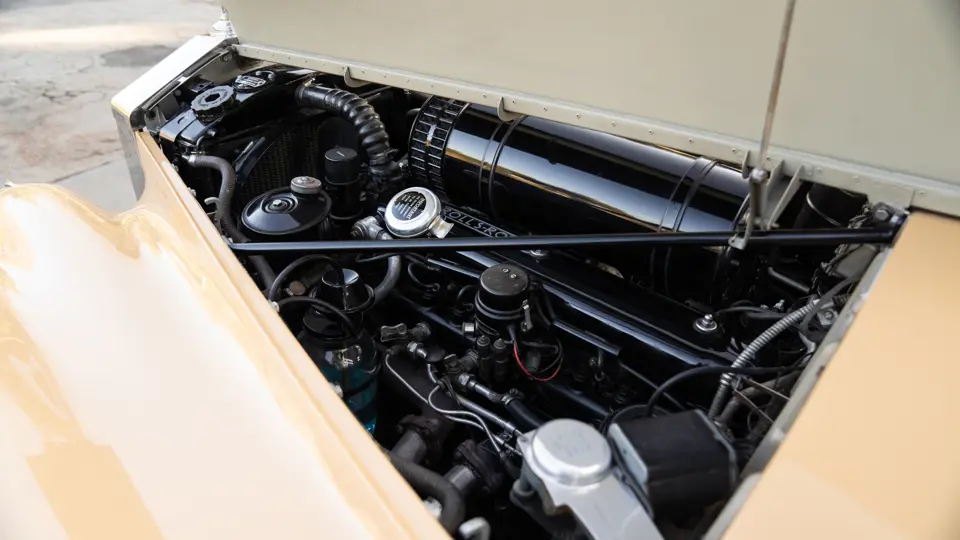
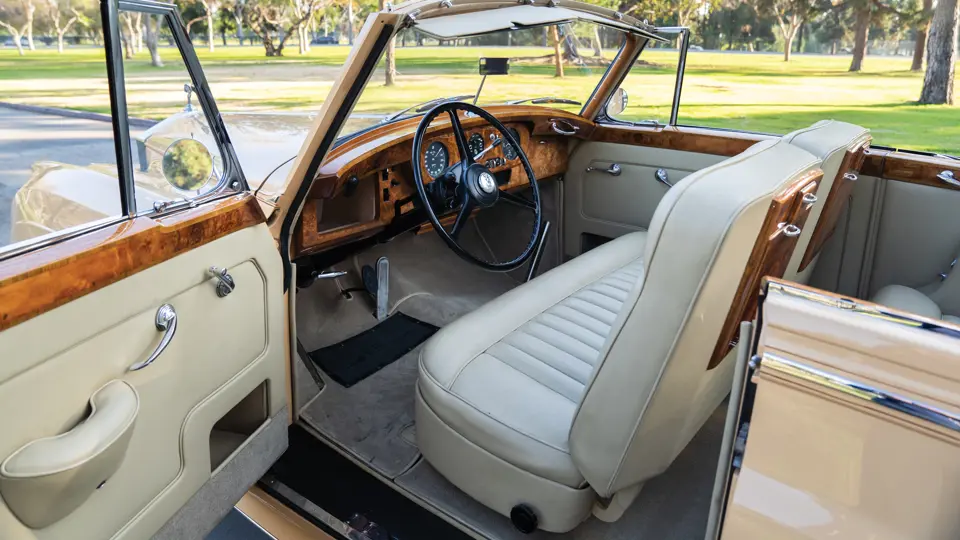

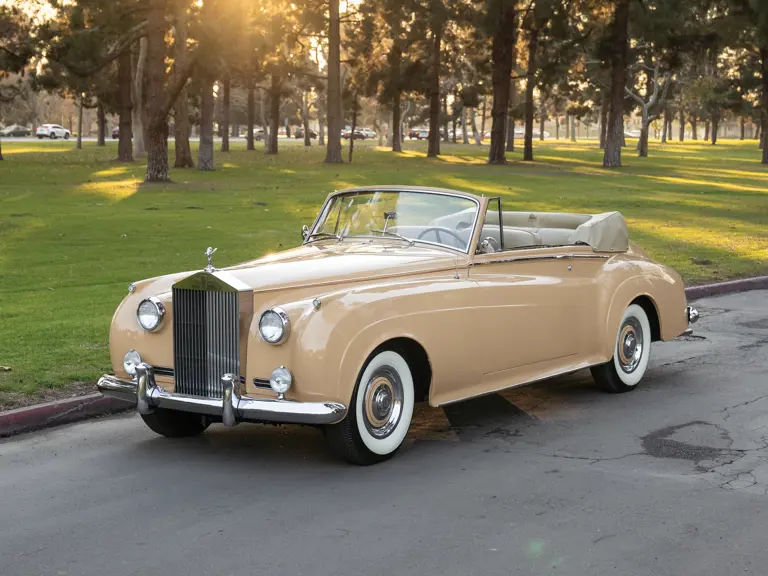
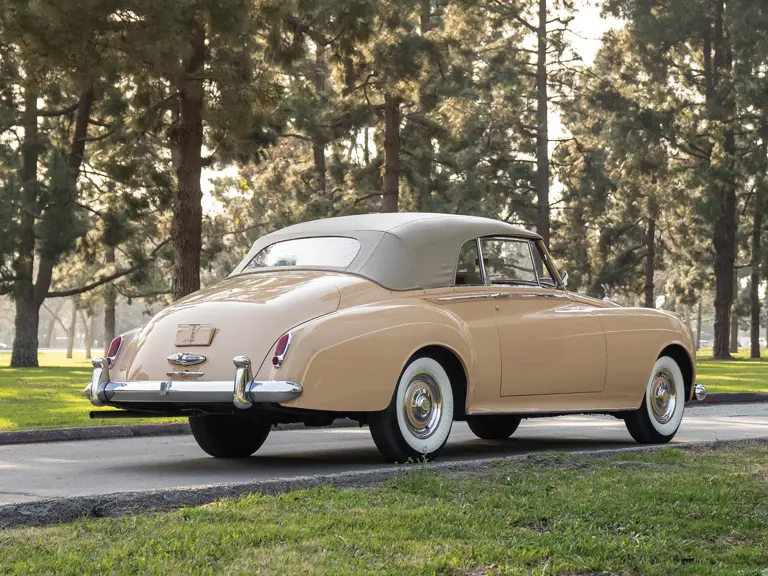
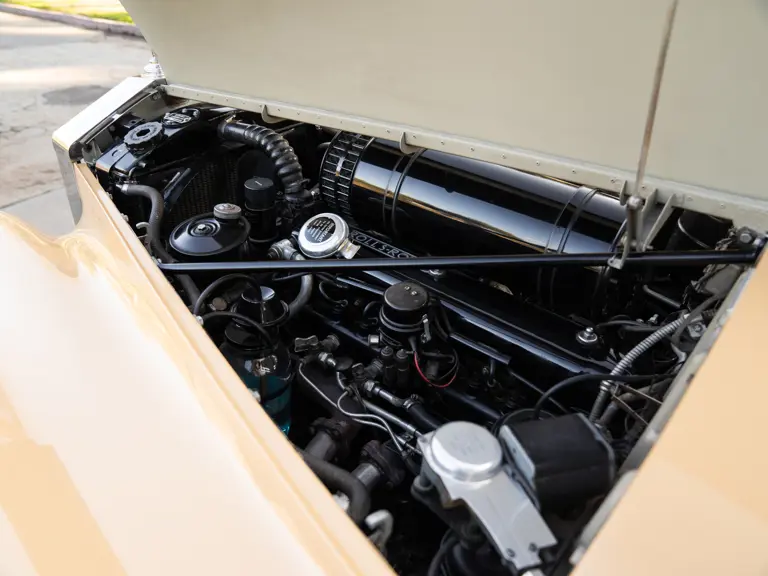
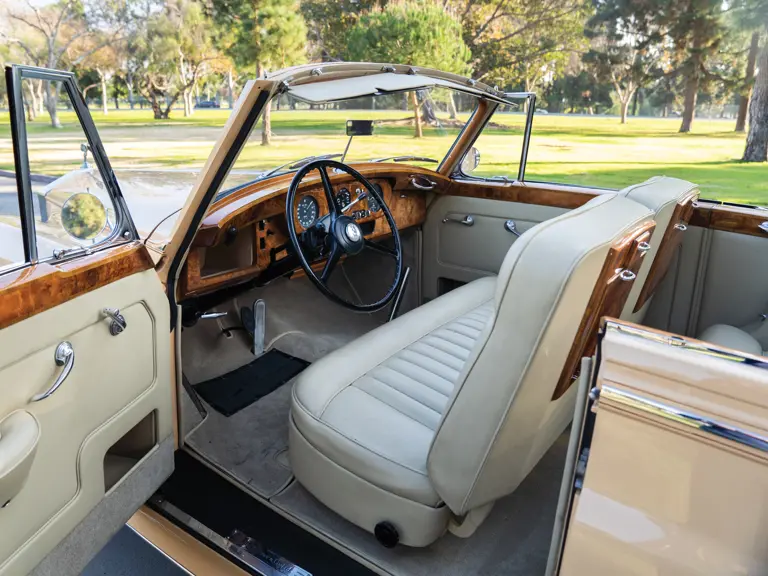
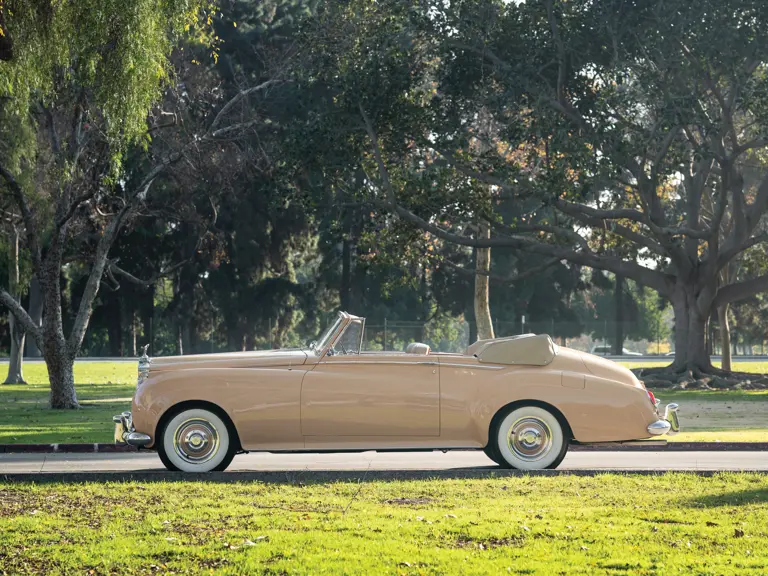
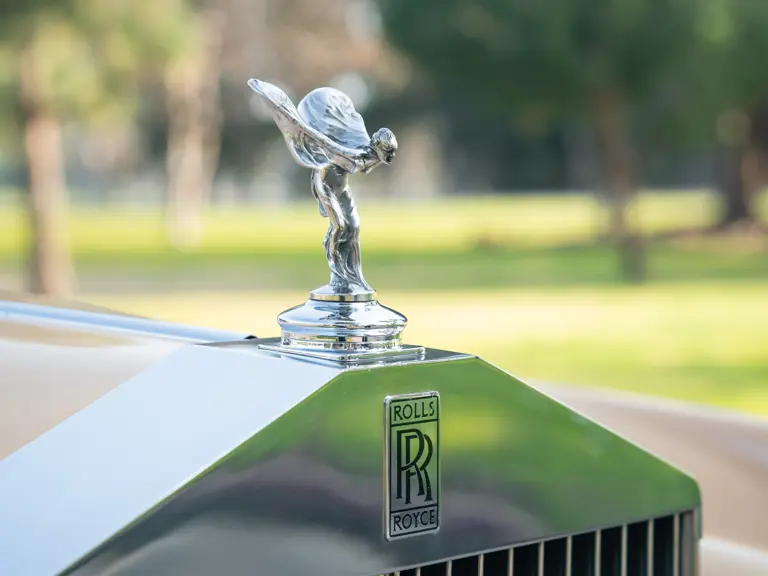

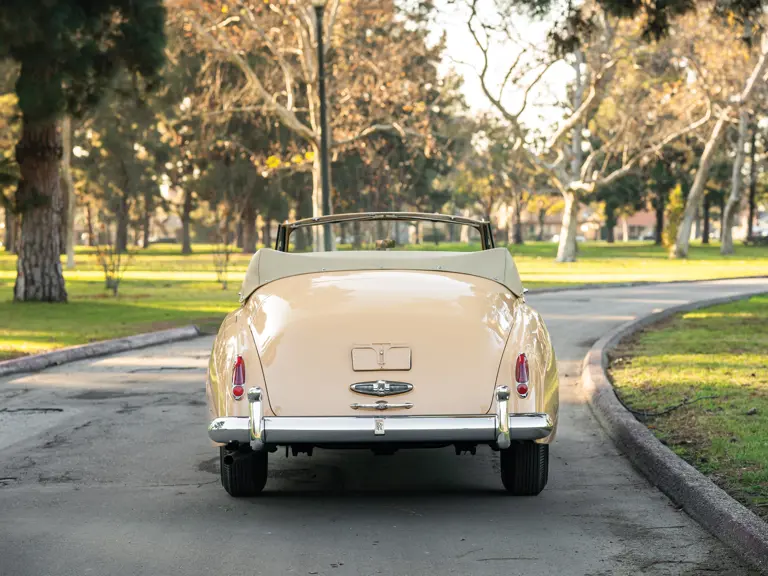
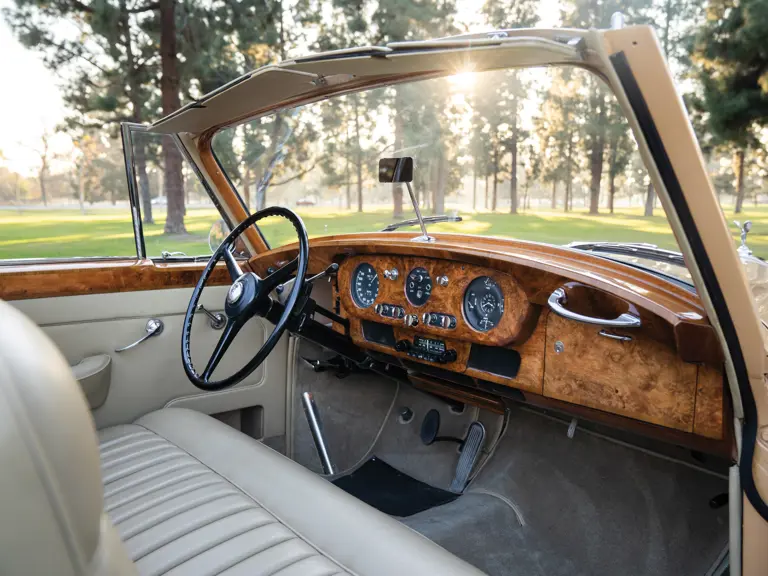
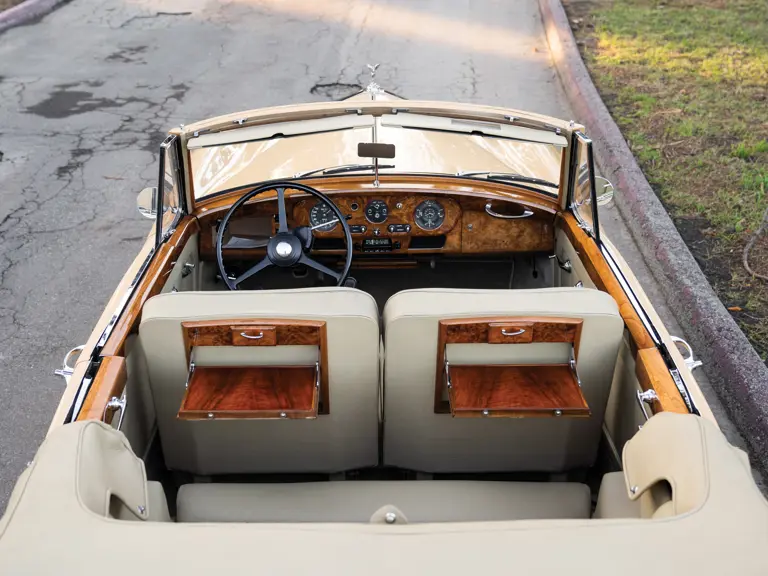
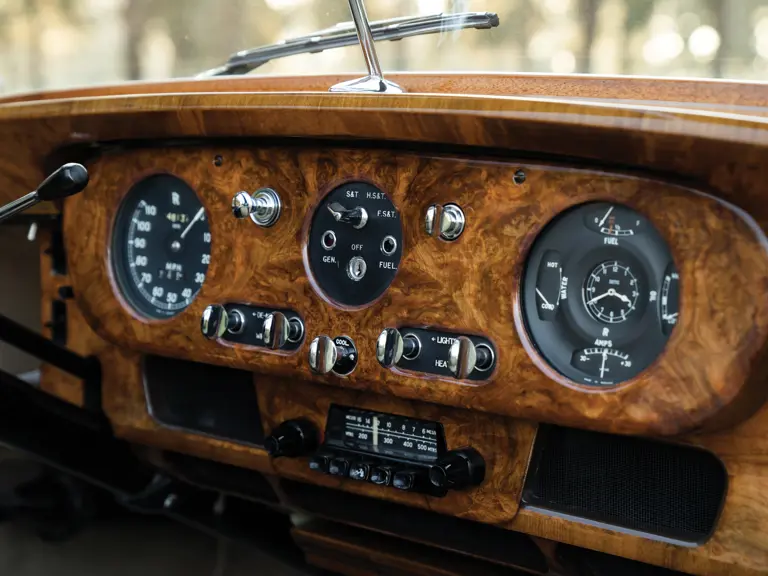
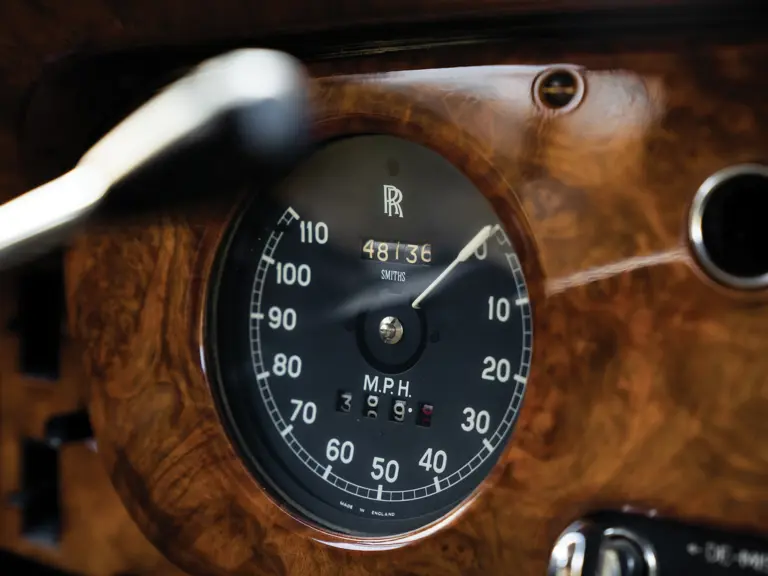
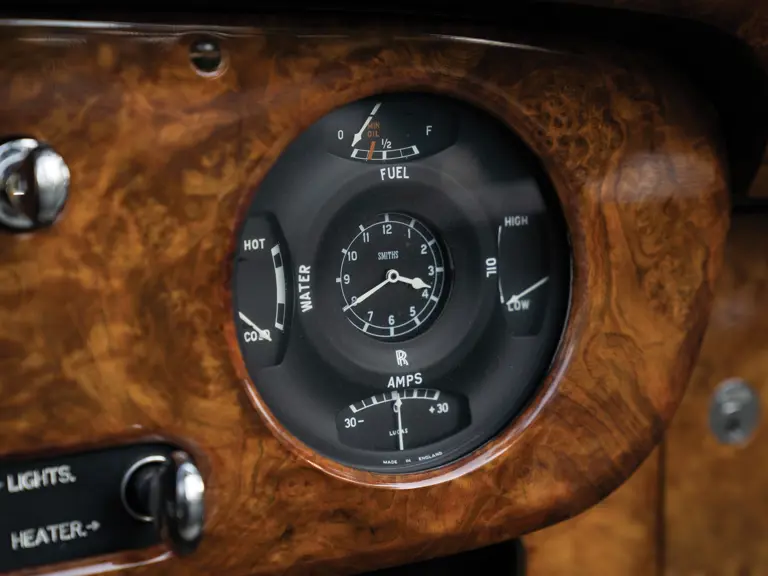
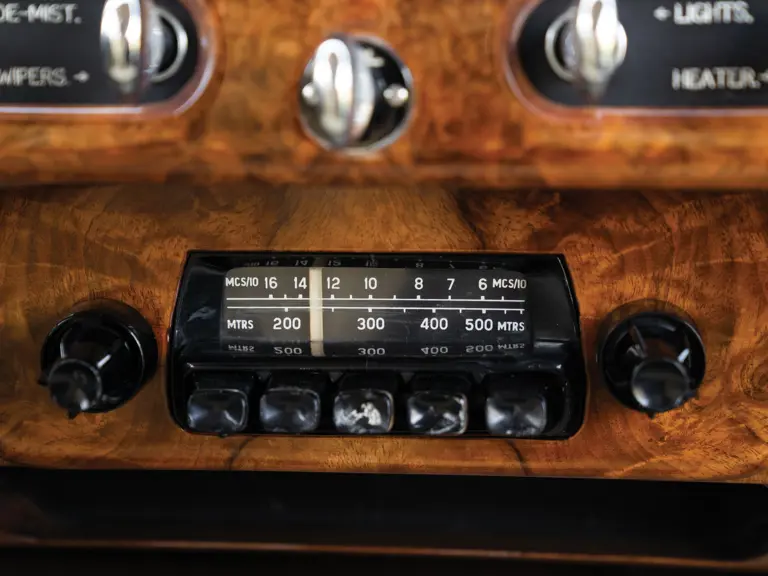
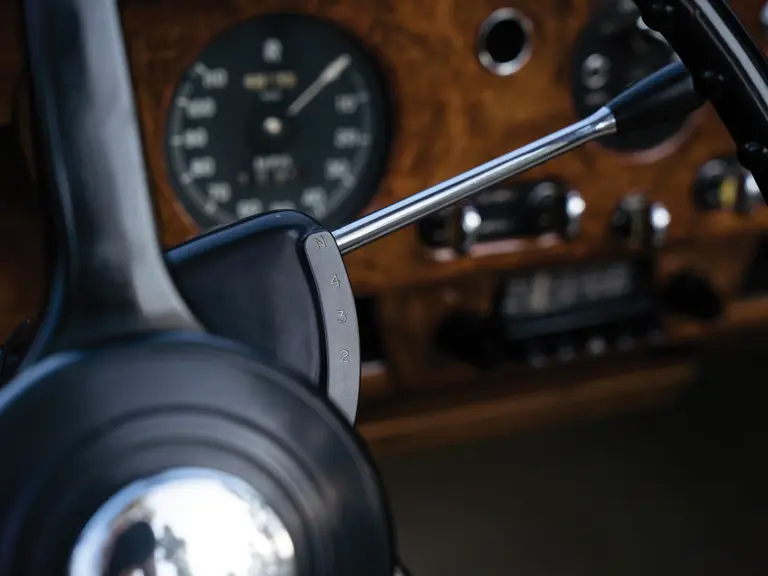
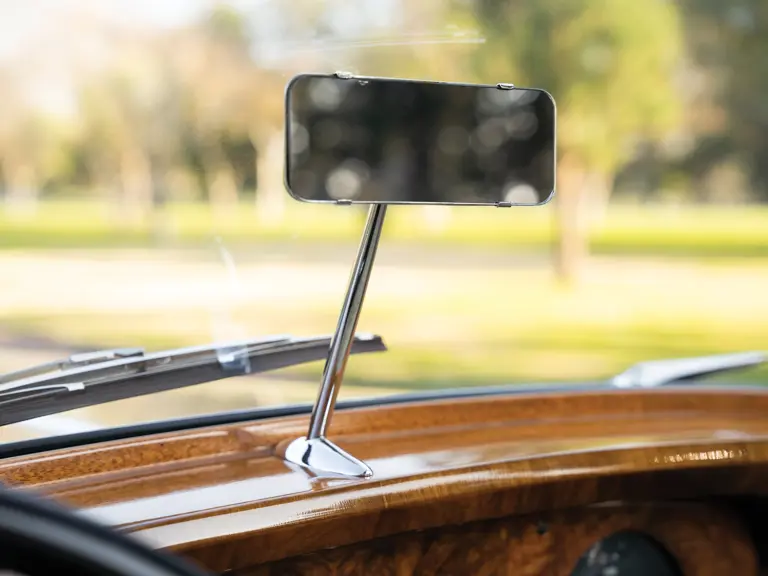
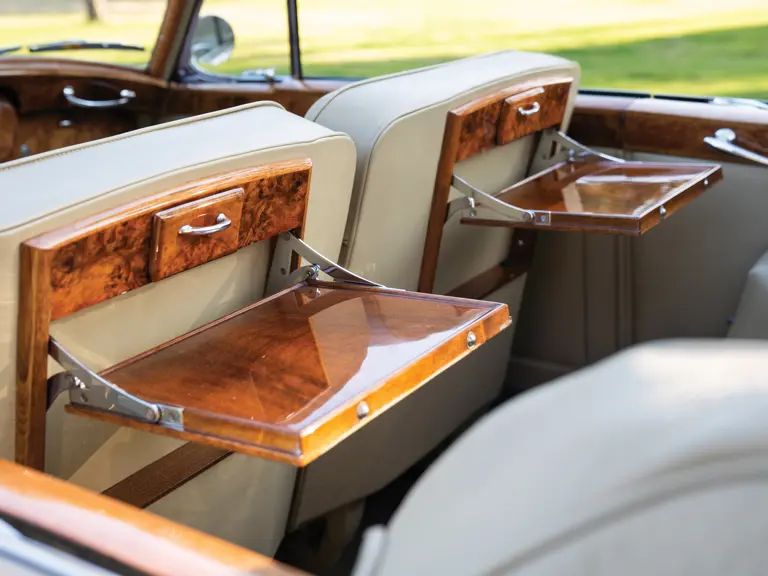
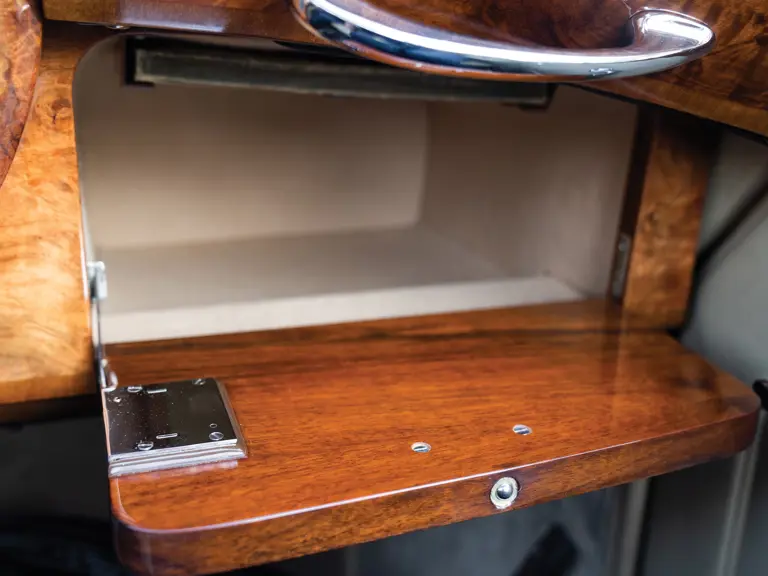
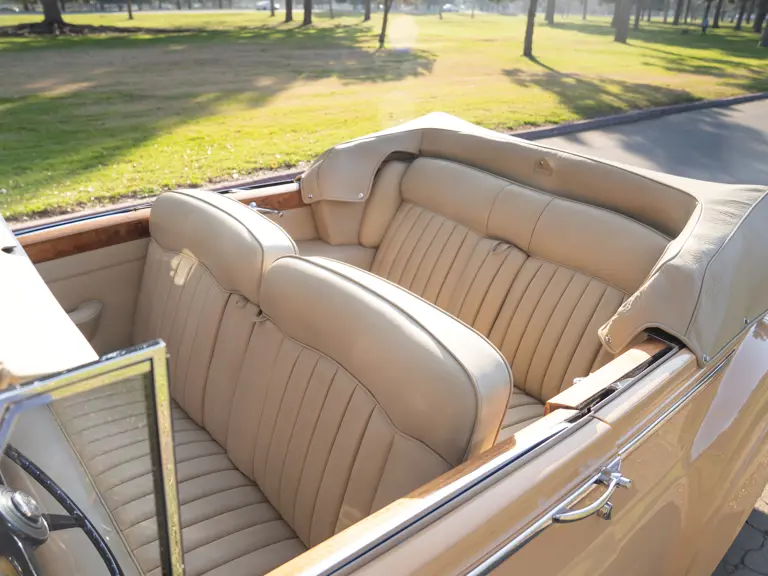
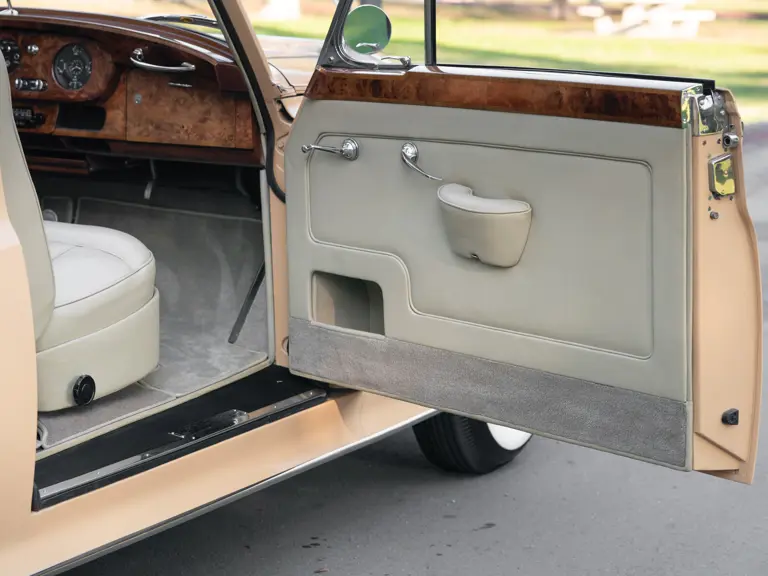
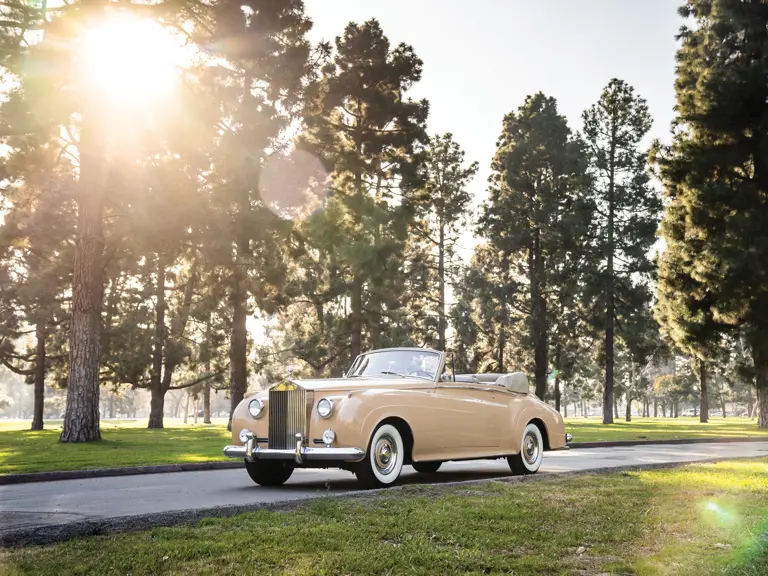
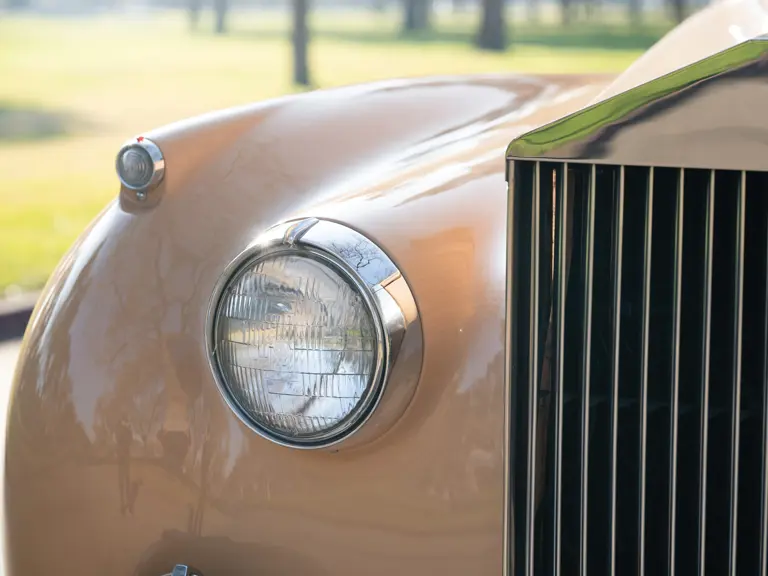
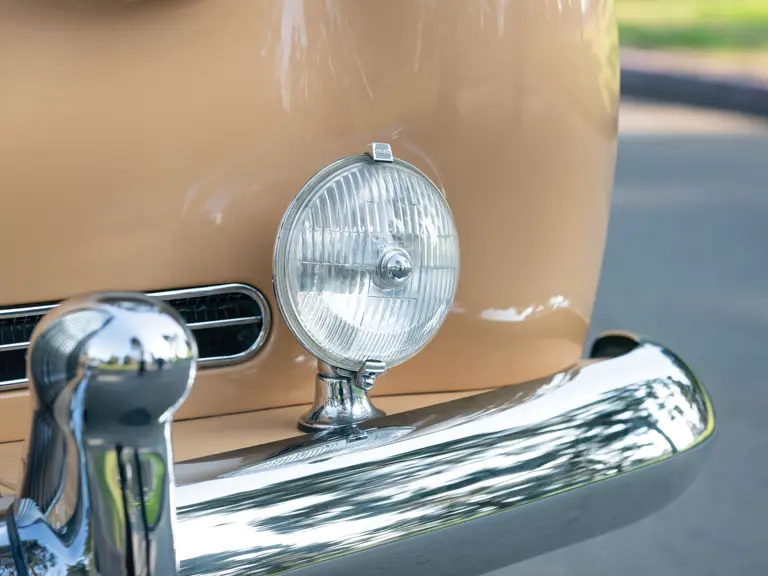
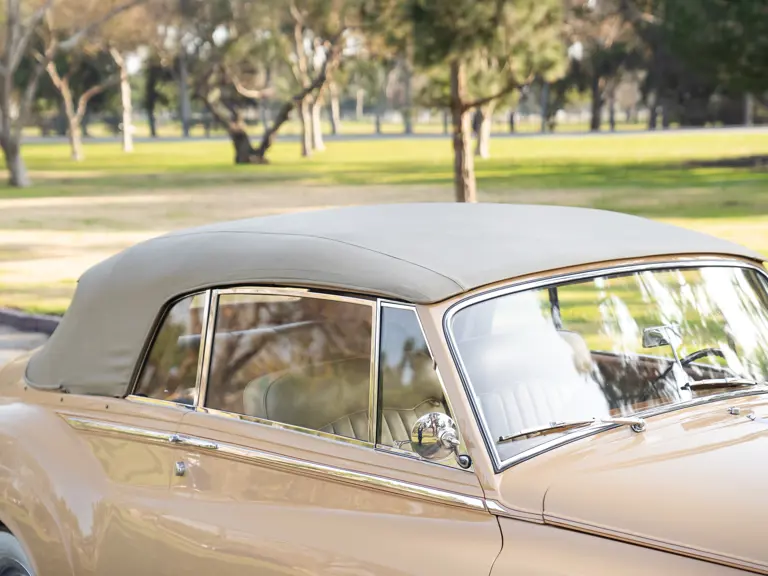
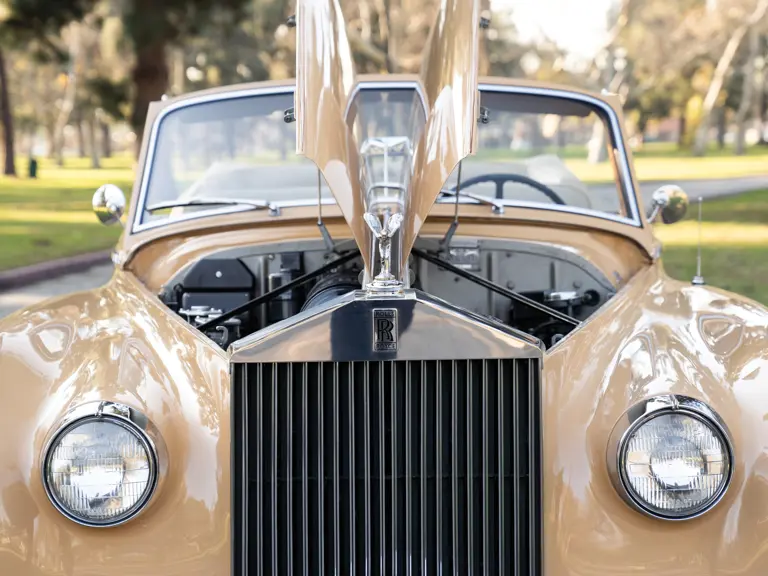
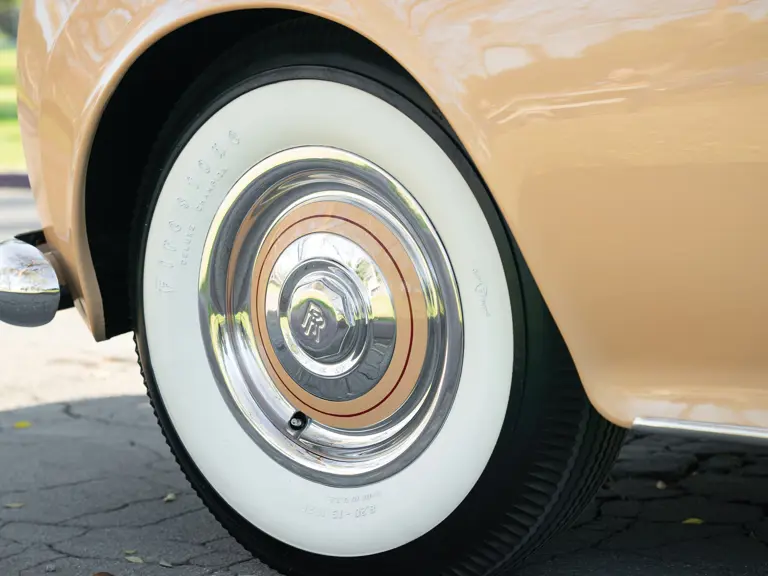
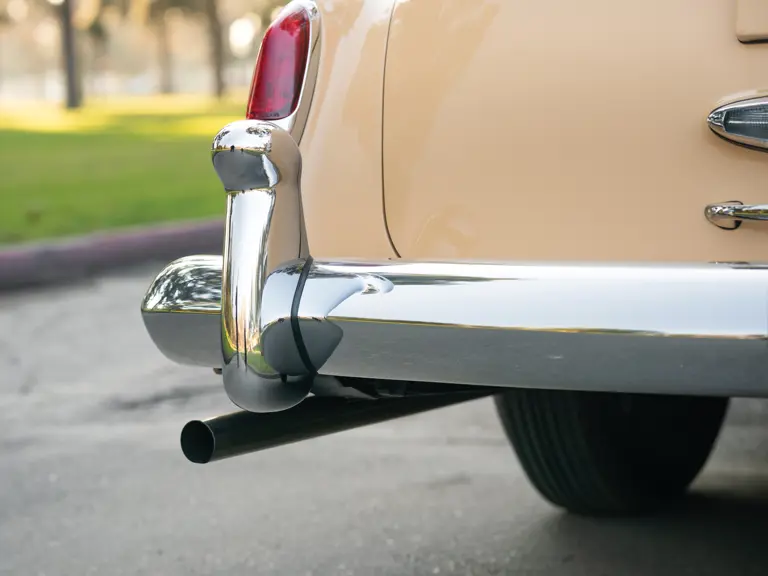
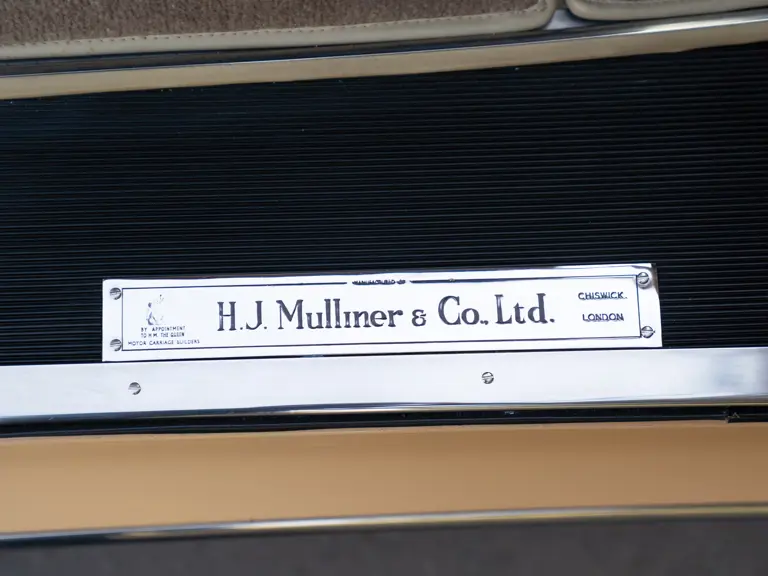
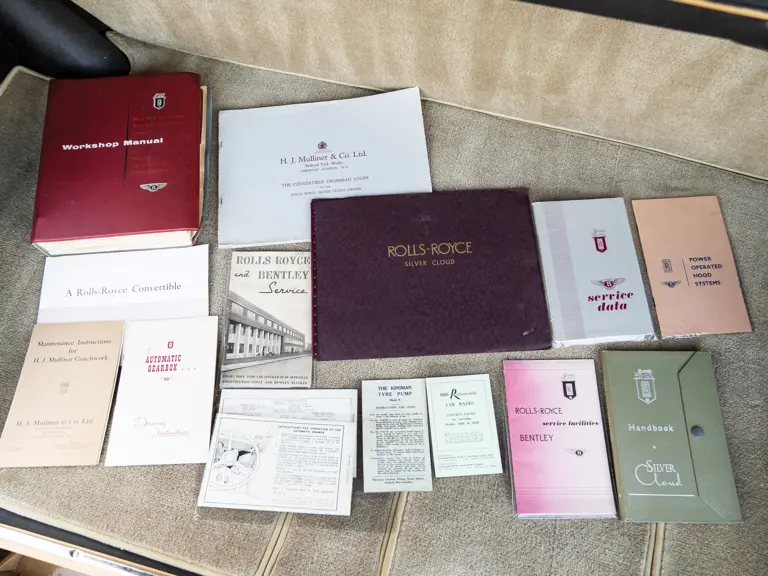
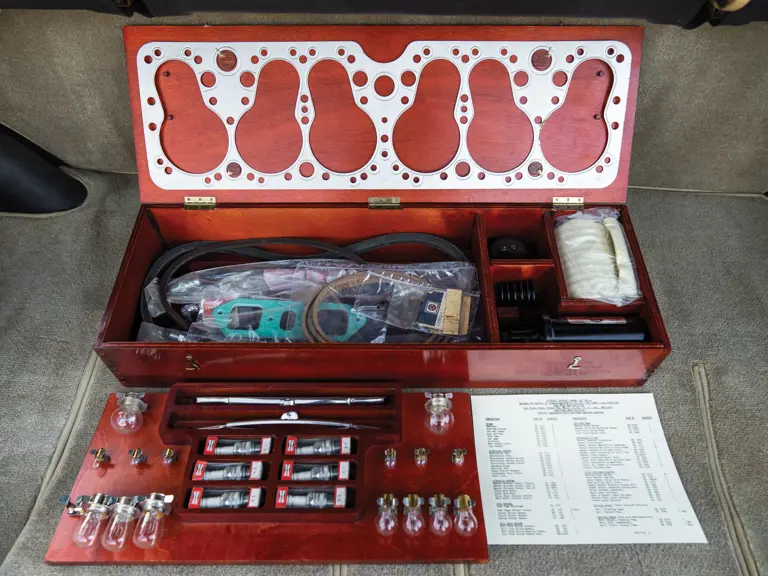
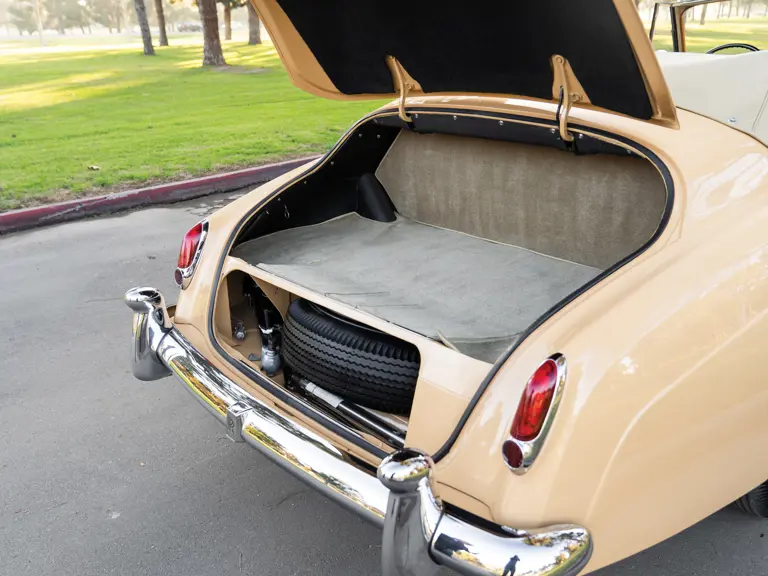
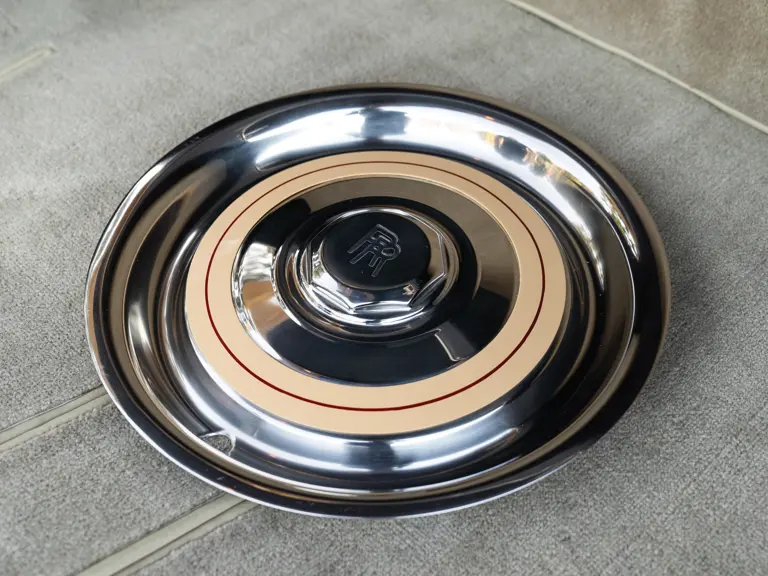
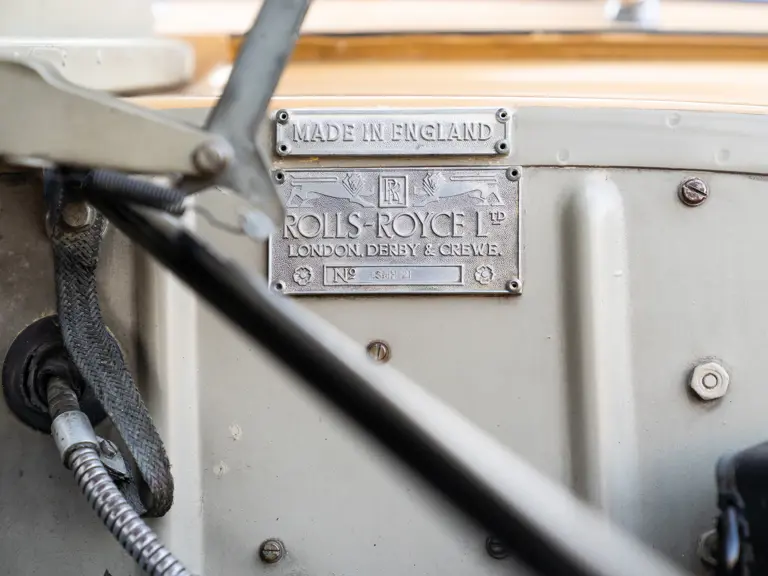
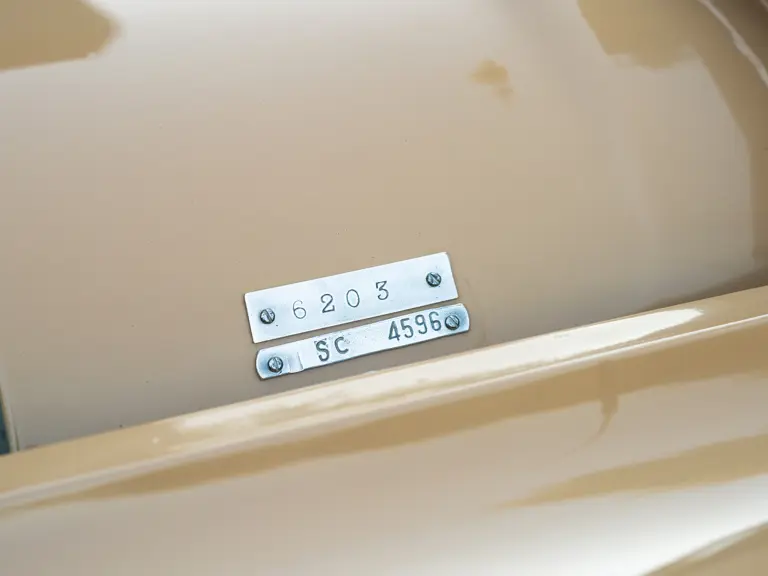
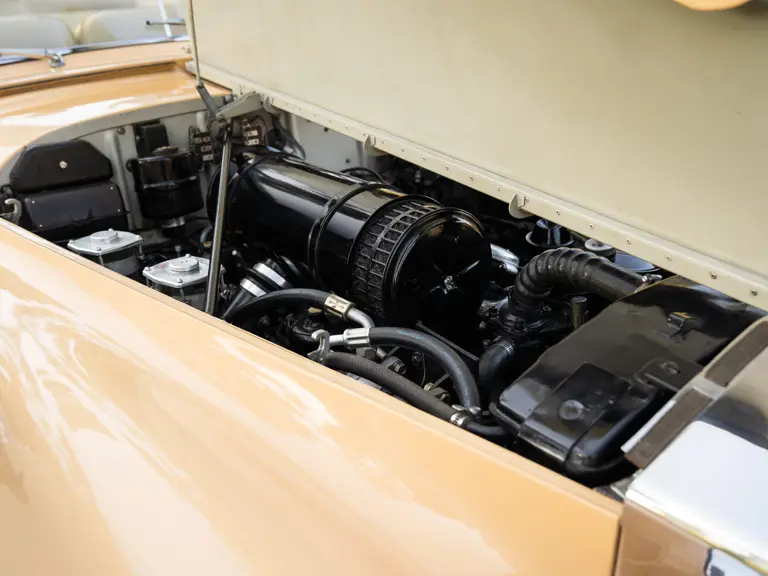
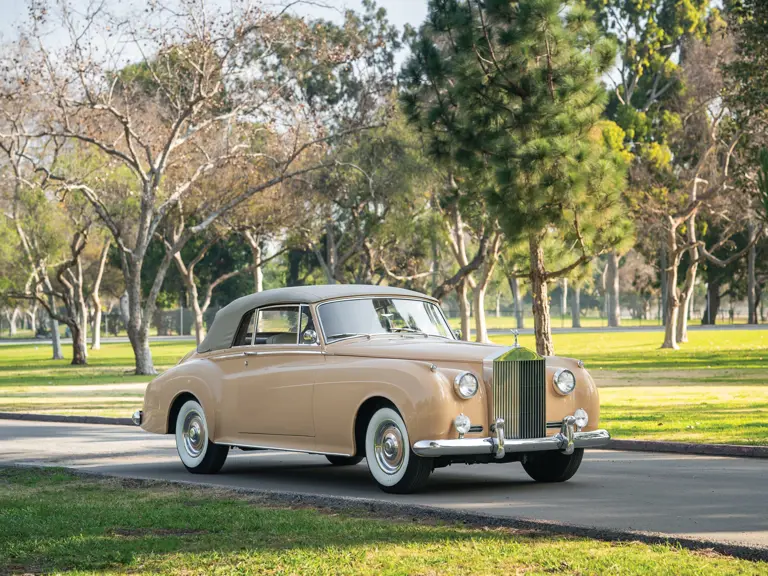

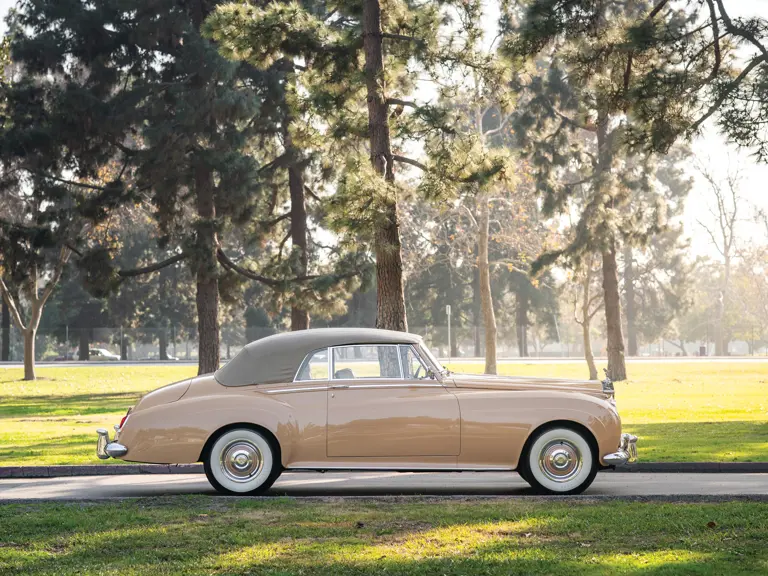
 | Amelia Island, Florida
| Amelia Island, Florida
